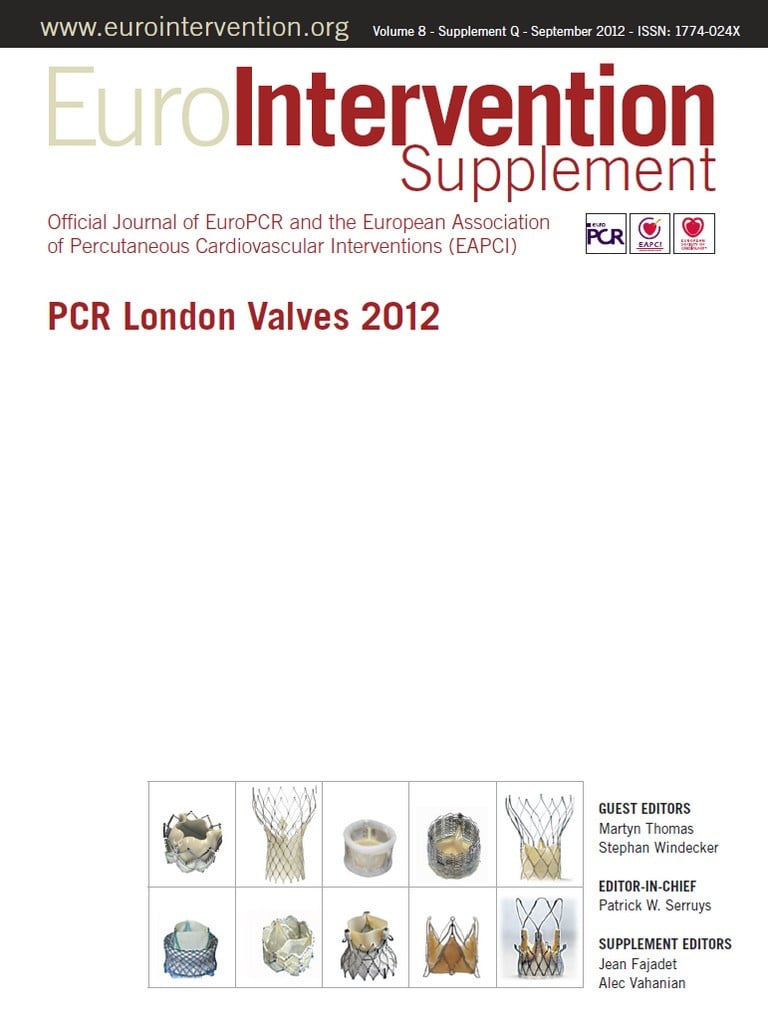![]()
Treatment and consequences of regurgitation during transcatheter valve therapies
MitraClip repair for severe mitral regurgitation: initial Asian experience
Aims: Percutaneous mitral valve repair for severe mitral regurgitation (MR) is now possible utilising the MitraClip valve repair system. The aim of this study is to describe the initial experience in Asia with the MitraClip device.
Methods and results: Twenty-eight patients underwent treatment with the MitraClip between April 2011 and April 2012 in two tertiary academic medical centres in Singapore. Data on demographic, clinical and procedural characteristics, as well as outcomes were collected prospectively in a registry and analysed. Of the 28, 14 (50%) had functional MR, 12 (42.9%) had degenerative MR and two (7.1%) had mixed pathology. The median age was 66 years, 13 (46.4%) were male, and 22 (78.6%) were Chinese. The mean BMI was 23.7, seven (25%) were in NYHA Class II and 21 (75%) were in NYHA Class III-IV. Ten (35.7%) had diabetes mellitus and eight (28.6%) had prior coronary bypass surgery. The median LVEF was 40% and the median logistic EuroSCORE II was 2.8. Seventeen (60.7%) patients had one clip while 10 (35.7%) had two clips. Acute procedural success was achieved in 26 patients (92.9%). Of the two patients who were technically procedural failures, one was a clinical success. In this patient, with severe MR from Barlow’s disease, prior breast cancer with radiation therapy, cardiac cirrhosis, chronic renal failure and a body weight of 37 kg, the goal of therapy was to reduce MR from 4+ to 3+. This was achieved and the patient had dramatic clinical improvement. Of the two major adverse events, one was from single leaflet attachment, urgent surgery and eventual death in a patient with functional MR; and the other was from oesophageal laceration from the transoesophageal echo probe resulting in blood transfusions.
Conclusions: The MitraClip has been successfully used in North America and Europe for the percutaneous treatment of severe MR. This case series demonstrates that percutaneous mitral valve repair using the MitraClip can be safely and successfully performed in an Asian population for both degenerative and functional MR.

